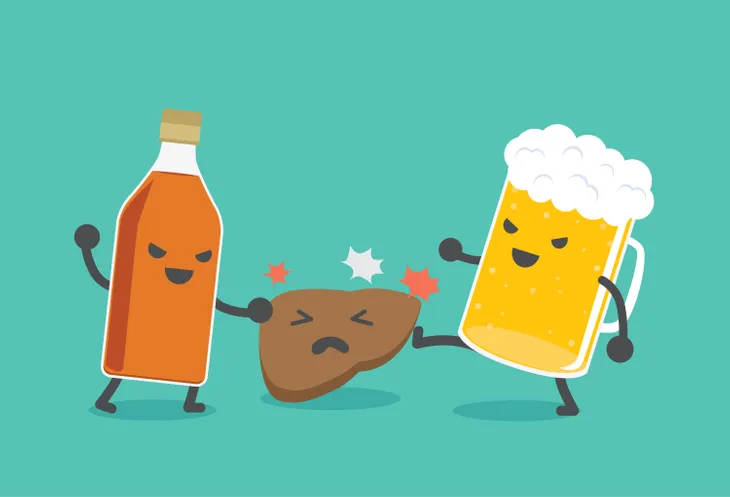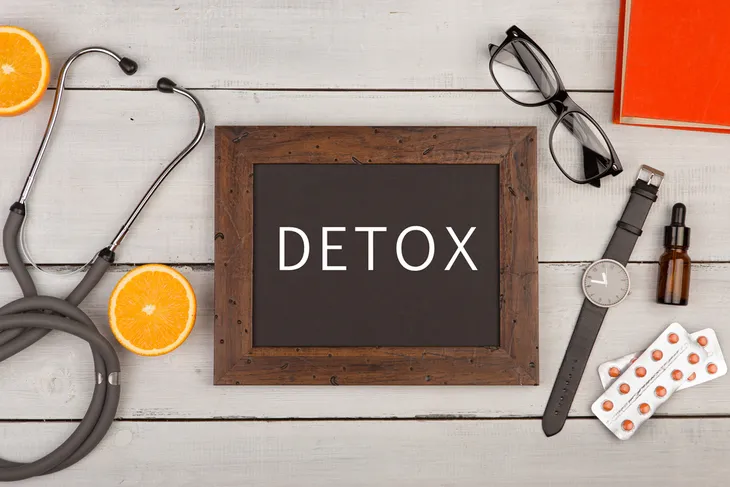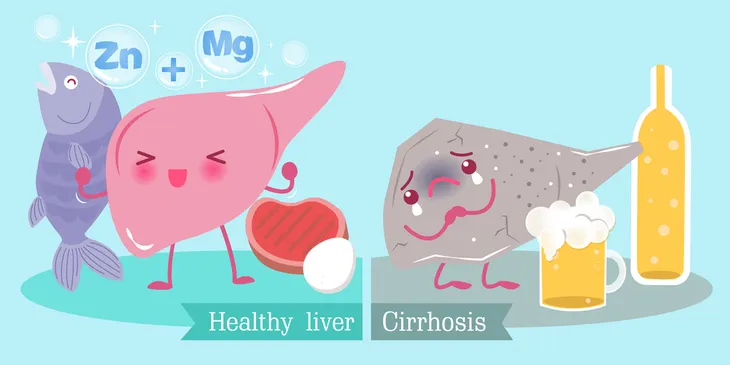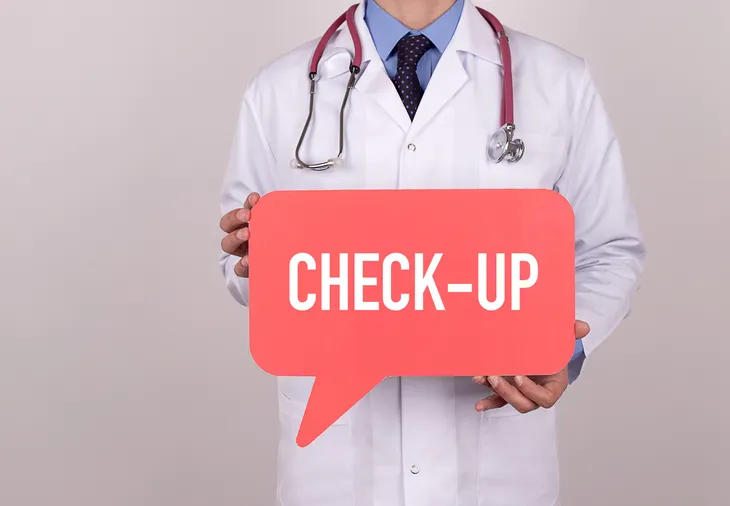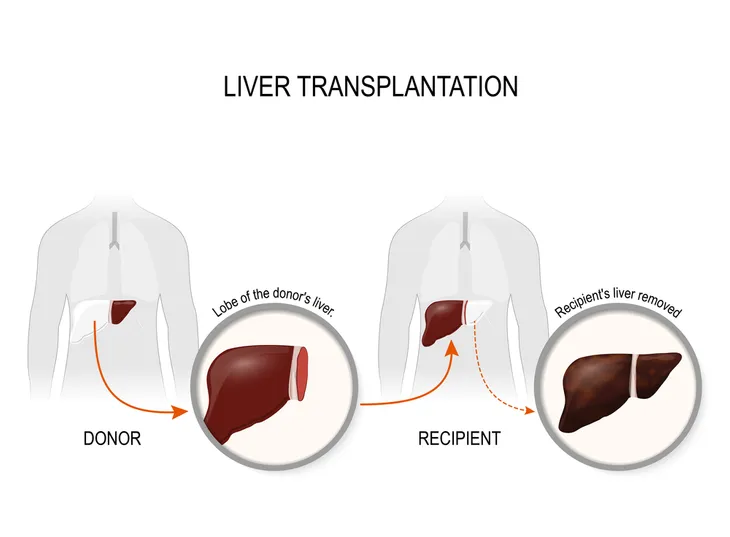The liver has more than 500 vital functions and one of its most important functions is filtering toxins from your bloodstream. However, like all organs, it’s susceptible to diseases ranging from moderate to life-threatening.
There are a wide range of liver diseases. However, they’re not all caused by the same things, and you won’t always know your liver has a problem. Let’s filter out 12 myths about liver disease…
It Isn’t Just a Drinking Disease
A lot of people associate liver disease with alcoholism. While it’s true that heavy drinking can lead to liver damage, it isn’t the only cause. You can actually be born with liver disease or contract it from a virus, notes Liver.ca.
“Alcohol only causes one out of more than 100 different types of liver disease,” notes the source. In fact, in Canada, where the source is based, non-alcoholic fatty liver disease is the leading cause of liver disease.
You Can’t Always Tell There’s a Problem
The same source explains that you won’t necessarily feel sick if you have liver disease, because the “symptoms can be vague and easily confused with other health problems.”
In fact, in some cases, you may not have any symptoms at all as your liver chugs along despite “significant damage,” adds the source. When you do have symptoms, it could be in the form of fatigue, nausea, or yellowing of the skin and/or whites of the eyes (jaundice).
A Liver ‘Cleanse’ Won’t Rid Disease
There are many fancy dietary health cleanses that claim to magically detoxify your body. But in reality, your liver is already doing the work (although there are foods that can aid its function).
Unfortunately, if your liver has already suffered damage, you can’t reverse it with the latest miracle cleanse, says John Hopkins Medicine. The source cautions that “liver cleanses have not been proven to treat existing liver damage.” The most effective treatment for non-alcoholic fatty liver disease, for example, is weight loss, says the source.
Your Healthy Liver Can Keep You Healthy
While we’re on the subject of cleanses, remember that a well-functioning liver can maintain your health without adding cleanses to your diet, reports John Hopkins Medicine. Liver cleanses are not approved by the Food and Drug Administration (FDA) and have not been “adequately” tested in clinical trials.
Some ingredients in popular liver cleanses can be beneficial, such as milk thistle to reduce liver inflammation, and turmeric extract to protect against liver injury. However, there’s still not enough clinical evidence to recommend these products for daily prevention.
Obesity is a Big Risk Factor
Some seem to think that being classified as obese doesn’t equal a higher risk of liver disease, but it might be dangerous to think like that. John Hopkins Medicine reports quite the opposite, as it significantly raises your risk of liver disease, even if you don’t drink.
The source goes on to note that fat in the liver can cause inflammation, which can lead to fibrosis and cirrhosis. Both are serious liver conditions, and the latter can cause the organ to be permanently damaged (and even cause death).
You Can Get Cirrhosis Without Drinking
Again, cirrhosis of the liver is commonly attributed to alcoholism. However, as Liver.ca explains, “Cirrhosis is the term used when any liver disease has reached an advanced stage.”
Cirrhosis can occur from pre-existing conditions or diseases, such as viral infections, metabolic diseases, inherited diseases (such as hemochromatosis), and severe reactions to medications.
Liver-Related Dementia Symptoms
Liver.ca says that dementia symptoms aren’t always just caused by Alzheimer’s disease – and they can originate from your liver, as opposed to your brain. The source says if you have liver problems, toxins not filtered out of your bloodstream can accumulate and cause a condition that resembles dementia.
The condition is called hepatic encephalopathy (HE), and it’s described by the source as “the deterioration in brain function observed in people with acute liver failure or chronic liver disease.” Symptoms include difficulty thinking, anxiety, and insomnia.
Liver Problems Won’t Show Up in a Routine Blood Test
Unfortunately, liver disease can slip under the radar when you’re getting regular blood work performed, says Huffington Post. That’s because doctors don’t usually order blood tests that specifically measure liver function, “which could partly explain the often very late diagnosis of liver disease,” it notes.
It says patients need to be tested specifically for aspartate aminotransferase (AST) and alanine aminotransferase (ALT), which can tell doctors that there’s cellular death in the liver. Additionally, elevated levels of alkaline phosphatase in the blood can indicate a reduction in bile secretion, which is essential for the proper digestion of fats and other substances in foods.
Regular Checkups Won’t Uncover Liver Disease
Along the same lines, you can’t be diagnosed with liver disease through a routine annual medical checkup, says Liver.ca. That’s because doctors don’t usually include liver testing unless there’s a problem suspected.
As mentioned, liver problems can show up when disease has significantly progressed, “so it is important for everyone to learn more about the risk factors and symptoms of liver disease and then use this information to engage in liver-healthy discussions with your doctor during your check-up,” it adds.
Jaundice is Actually Not Normal in Infants
Liver.ca explains that although yellowing of the skin and whites of the eyes (jaundice) is common in babies, it doesn’t make it normal. In fact, jaundice can be an early warning sign of liver disease, notes the source. While jaundice in newborns lasting 3 to 5-days is not usually a cause for concern, jaundice lasting more than 14-days means a trip to the doctor is in order.
Meanwhile, the same source says pediatric liver specialists see “see thousands of children” from infants to teenagers who have some form of liver disease, with the major causes being genetics and blockages of bile from the liver.
You Can Reduce The Risk
While we’ve told you some cases of liver problems are unavoidable (i.e., genetically linked cases of liver disease), there are “preventative steps” to protect against liver disease, says John Hopkins Medicine.
These measures include (you guessed it) not drinking alcohol in excess (no more than two drinks per day for men and no more than one for women), watch your weight (maintain a body mass index [BMI] of 18 to 25 or talk to your doctor or dietician), avoid engaging in unprotected sex (with multiple partners) or illicit drug use, and know the risk factors for Hepatitis C (including if you had a blood transfusion before 1992).
Liver Transplants Are Not a Cure
If you’ve been lucky enough to have a life-saving liver transplant, congratulations to you. However, it doesn’t mean you’re out of the woods yet, says Liver.ca.
The source says the original underlying cause of the liver disease (e.g., if you have hepatitis C, a viral blood-borne infection) may return and damage the new liver as well. “In many cases, the virus will re-affect the liver within one year,” warns the source.

